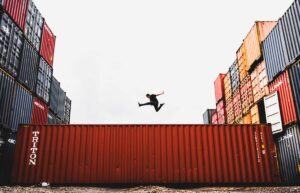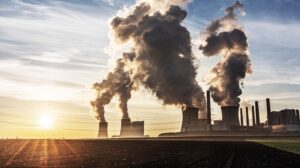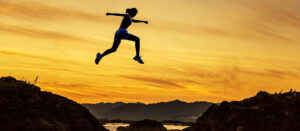We are in a pandemic. COVID-19 infection threatens humanity with illness and death. But disease from this microbe is not the only hazard to human health and wellbeing. People around the globe are deep into months of social isolation, community and familial disruption and economic hardships. We all have at least another year of social distancing — of being separated from our daily lives of physical contact and the warmth of others pressing against us. The separation from the physically social, of being in the presence of multiple others, can have devastating effects on our human frames. But it is not just the physical experience of social distancing that threatens us; how people perceive, understand, share and act on information about COVID-19, is equally important and has substantial impacts on bodies and lives.
The threats of the COVID-19 era are deeply biosocial, disrupting body, mind and community. That is why a little anthropological insight is of assistance as we try our best to stay social, stay informed, and stay alive. For anthropologists, context is everything. While it’s true that the COVID-19 pandemic is a dramatic and novel situation, it is also deeply the product of human histories, social and biological, ancient and recent. To have a better understanding of what is happening today we need to be clear about a few key anthropological points.
First, being social is more than having interactions with others, being in groups and sharing feelings. The human niche—the way humanity exists in the world—is social through and through. Humans evolved as beings whose needs to touch and be touched, to converse, debate and laugh together, to smile and flirt with one another and to interact in groups are central to healthy lives. The very functioning of our neurobiological systems, of the hormones and enzymes circulating through our arteries, guts and other organs, is tied to social connections and relationships with others. Unfortunately, this deep socialness, usually such a benefit, is the perfect pathway for invasion by the SARS-CoV-2 virus and the emergence of COVID-19.
But not being social is not an option. Countless experiments and lived experiences demonstrate that removing these daily immersions in social activity causes mental and physical health to deteriorate. Bad things happen when humans are socially isolated or disenfranchised; depression, reduced immune function, gastro-intestinal distress, cognitive difficulties, and worse. So, we must endeavor to stay social, as best we can.
The separation from the physically social, of being in the presence of multiple others, can have devastating effects on our human frames.
Second, our relationship with SARS-CoV-2 does not emerge out of thin air. It comes, in part, from our deep history of being with other species. For at least the last 10-20,000 years, humans across the planet have been interacting with, manipulating and being manipulated by a range of plants and animals. These relationships, which some call domestication, is really a dynamic system where humans and others are shaping each other’s bodies, physiologies and behaviors over space and time. This includes the sharing of pathogens—microbes that move back and forth between bodies mutating, harming and helping. Tuberculosis, influenzas, rabies, malarias, salmonella and a variety of corona and other viruses have been travelling back and forth between humans and other animals for millennia. Infections like this are not new, but the context of the COVID-19 pandemic is.
COVID-19 is new, but not because of the biology SARS-CoV-2, even though it is particularly contagious and vigorous. Rather, COVID-19, the SARS-COV-2 disease and all of its accompanying horrors, is as serious as it is because of human reshaping of the world. Humans are consummate niche constructors; we push and shape the world, creating urban landscapes, industrial agriculture, global economies and genomic technologies. But the world pushes back, creating new systems and dynamics.
Human niche construction is not only about the emergence of urban landscapes, motorways, re-directed rivers, filled-in coastlines and expansive agricultural processes, it is also the restructuring of societies and cultures, of histories. Human niche construction creates simultaneously ecological, biological, social, political and economic systems that are always interrelated. These interrelations set the stage for COVID-19, and knowledge about them is crucial for understanding the contemporary context.
Not only are Homo sapiens more densely concentrated, more connected, and just more, but human societies are more stratified materially, economically and politically than ever.
Today’s world is interconnected more than ever. Planes, trains, ships and other transport systems carry people across the globe in record numbers, and record time. Humans and everything they have on and in them can fly from Mexico City to London to Beijing in just over 24 hours. Humans are more densely packed than ever. There are over twice as many humans alive today as there were just 50 years ago (3.4 billion vs. 7.8 billion). Not only are Homo sapiens more densely concentrated, more connected, and just more, but human societies are more stratified materially, economically and politically than ever. Access to health care, shelter and nutritional support is extremely unequal. And racist and nationalist fervor, with deep roots and virulent impact over the last 500 years, has exploded and flourishes in the 21st century. This is the context into which COVID-19 emerged, and the reason why it is so horrible and so damn complicated.
There is no easy way out of this. Just long, difficult and complex years ahead. We all need to be better informed, and organized, to get through this.
Knowledge is powerful, but only if it can be accessed and used. In the COVID-19 era there is a great desire, and need, for knowledge about the SARS-COV-2 virus and its infection’s processes, risks and outcomes. Many sources are producing such knowledge and many others are trying to explain it, but much of the core information is not getting through. Even when valuable information does make it into the broader public, it often doesn’t ‘stick’. That is why we all have to work more vigorously and effectively to seek accurate knowledge and to share it.
The human niche—the way humanity exists in the world—is social through and through.
The social transmission of ideas and understandings is central to human success and continued existence. Being social is not just about shared interactions; it is about building community. Human history is centered on the social; the ways our bodies and minds evolved predisposes us to be investors in our communities. While being social, even at a distance, won’t solve all of the problems faced during COVID-19, it will help many. Maintaining strong relationships and keeping up daily social interactions, along with persistent questing for information, are critical for humans across the globe. Being social, sharing accurate information, and better understanding why we are where we are right now are key to staying healthy, and sane, as we work to deny SARS-CoV-2 places to live and spread.
Trained in Zoology and Anthropology, is a Professor of Anthropology at Princeton University. His research delves into the how and why of being human. He is an active public scientist, a well-known blogger, lecturer, tweeter and a writer and explorer for National Geographic. His current projects include exploring cooperation, creativity, and belief in human evolution, multispecies anthropologies, evolutionary theory and processes, and engaging race and racism.



Such a great piece to read as I think with race and co-belonging. Finding it hard to shift/decentre the focus on human sociality
Yes, you are right, it is very difficult to decenter the theme and reality of human sociality in all of these things. But why should we try? Rather, lets take it a frame for all of these analytics and see where it takes us.